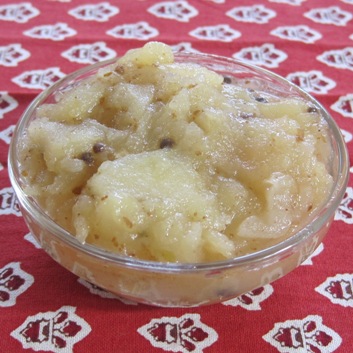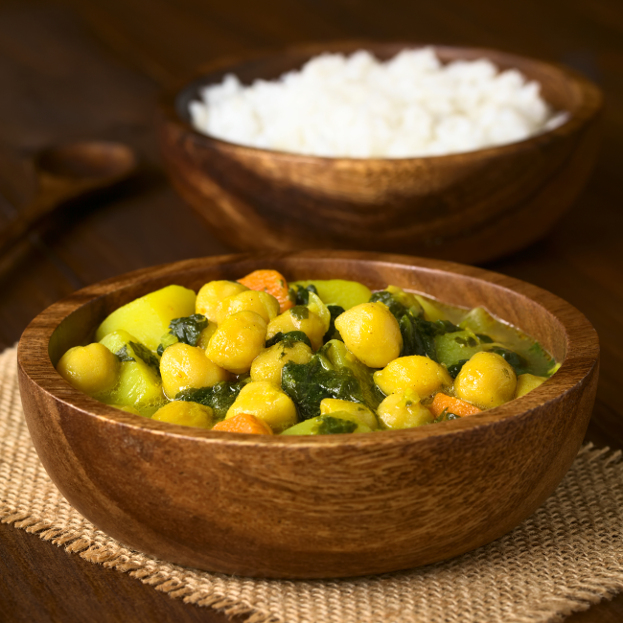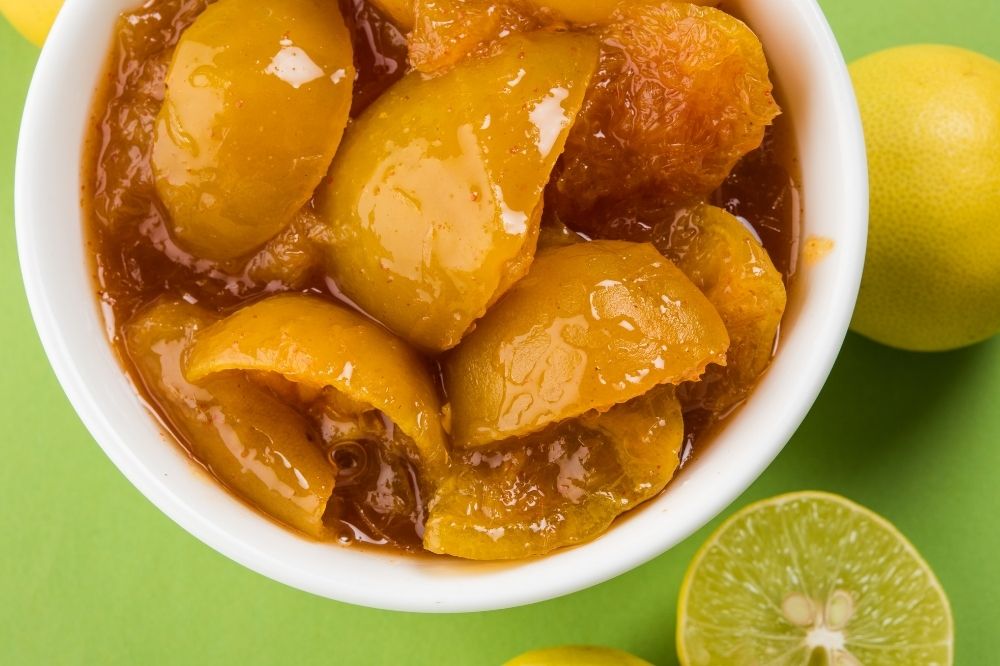
AYURVEDIC FOODS
Table of ContentsHow Does This Ayurvedic Food Improve Wellness?CLINICAL AYURVEDIC REVIEWMustard seed is a vigorous and energizing herb for the adventurous spirit. For a faint hearted person, mustard seed restores courage. This pepper spice is full of pop and surprise. It seems to explode in the sinuses and nasal passages, reminding me of the last time I ate too much wasabi at a sushi bar. The striking spice has been used throughout history from ancient Ayurveda and Greek medicine down to the modern day. Pythagoras includes mustard as a remedy for scorpion stings. Hippocrates used it in poultices to move blood in inflamed areas. Its use continued through medieval western herbalism. In 1699, an herbalist named John Evelyn wrote that Mustard quickens and revives the spirits, strengthens the memory, and expels heaviness. In early 2020, here's what one student from the Joyful Belly Food Lab had to say: "As soon as I bit into them, I felt the mustard spread to the back of my mouth, up my throat and into my nose, ears, and even eyes. My head was lighter, as if all my sinuses had been spontaneously cleared. My eyes watered slightly. I could also feel it in the middle of my chest, behind the sternum -a mild heating sensation. I felt the clearing heat in my lungs as well. I felt as though it opened my lungs. Even my ears felt cleared as my earwax was a bit more fluid the next morning. The pleasant sensations eliminated the heaviness I was feeling in my head and in my chest."
 Footnote: The information for this article was in part gathered from a 2020 study at the Joyful Belly Food Lab. In the study, 35 students of Ayurveda ate mustard seed for 3 days and journaled the pharmacological effects. This study was sponsored by the Joyful Belly School of Ayurveda, and the Mastering Ayurvedic Digestion & Nutrition certification course. What is a mustard seed?Mustard seeds are small and round seeds in the Brassicacea family. They are often yellow, brown or black. There are approximately 40 different mustard species, many of them wild and some grown for use as spice. Wild mustards are easy to spot and grow all around us. The family of mustards used to be called Cruciferae because their flowers look like a cross. The mustard plant itself is part of the Brassica genus. This genus includes many popular foods like cabbage, brussel sprouts, cauliflower, broccoli, kale, arugula, rocket, radishes, and turnips.Mustard seeds, greens and roots are eaten in many cultures. However, mustard is mostly known in Europe and the United States as a condiment, popular in French cooking and on hot dogs. Mustard condiment is a puree of mustard seeds, and vinegar. Turmeric is added to mustard to give it a bright yellow color. However, the seeds are more common in Indian cooking. You fry them in searing hot ghee or coconut oil. After a few moments they'll start to pop like popcorn. This toasting of the seeds gives a pleasant crunch and more subtle, more nutty flavor. The aromatic compounds infuse into the oil, imparting a peppery mustard aroma into the whole dish. Be careful not to overcook them though. When burned, mustard seeds turn bitter. The seeds may be sprinkled over foods as a garnish. They add zest to any salad, and can lighten up a bowl of mashed potatoes. Mustard seeds also appear in other culinary cultures, like Africa. They pop up in surprising places. In the United States you can also find the seeds at the bottom of many pickle jars or mixed into a honey mustard dressing! Mustard greens may be relatively mild as in arugula, or very sharp, astringent and rough as in radish greens. The root is sharp and tastes like horseradish or wasabi. Maca, an adaptogenic herb of recent fame, is actually the root of a South American mustard family plant. QualitiesMustard seeds are hot and sharp. One student mentioned, "My nostrils awakened (cleared) and my eyes watered slightly." Mustard seeds are also aromatic and light. "I can feel it with every inhale of my nose," said one of the students.
Mustard's heat penetrates and moves stagnation, it destroys obstruction everywhere as it spreads. Hot, pungent, aromatic foods generally spread heat throughout the body - and mustard is no exception! Another student mentioned, "I felt the heat in my stomach and core. Then the heat began to spread throughout my body." The heat is clearing. The increase in blood flow flushes out toxins and purges lymphatic obstruction. "I felt a light and clean sensation in my body after consumption," said one of the students. There is also a slight bitter taste to mustard seeds. Wherever pungent and bitter taste combine, the effect is called acrid. Acrid taste is rough and may be nauseating. It can even induce vomiting (i.e. mustard seed is an emetic). For some, mustard's pungency can be too rough and intense. For most individuals, it irritates the back of the throat and sinuses. One student felt "intense fire penetrating my taste buds." Another says, "it was not worth the irritation in my body." This intensity can be good for Kapha. Mustard's heat can warm up Vata when cold, but it can also be too rough for Vata. The heat is generally too much for Pitta Mustard seeds are also oily and their skin is slightly slimy (demulcent). 
How to ApplyMustard seed can be applied in several different ways. Grinding mustard seeds forms mustard flour. This mustard flour can then be mixed with water to make a poultice, or plaster, applied to the skin. Sometimes, mustard flour is mixed with vinegar which further enhances blood flow.Mustard poultices are used to relieve internal congestion of various organs. It works by drawing the blood to the surface. Applying this poultice externally to the whole chest may help with respiratory problems caused by inflammation. Mustard poultices were traditionally used for pneumonia, bronchitis, and similar conditions Fomentation is another process for applying mustard seed. A cloth dipped in hot tea made from mustard seed can be rubbed over the affected area of the body. Be careful and watch out for skin irritation or burning caused by mustard poultices or fomentation. Essential oils from mustard seed may also cause blistering of the skin. Mustard oil itself is less aggravating than essential oil of the mustard, but more hot and penetrating than frying the seeds in oil, In India, mustard oil is also used for cooking and applied topically as a massage oil. Rubbing mustard oil around an arthritic joint improves blood flow to the area and helps to relieve pain. Kaphas respond best to its use as massage oil. However, the oil is too intense for delicate Vata individuals, and too hot for Pitta's fiery nature. The FDA banned the sale of mustard oil for cooking because it contains ephedra. Ephedra was heavily marketed in the weight loss industry and for its stimulating qualities. Its overuse led to health problems and death. However, Asian stores still sell it with a label marked, "Not for human consumption." There are many other ways of using mustard seed. You can make a tea of crushed seeds, or a footbath. As a footbath, Mustard seed can be used as a counter-irritant to treat certain types of headaches. Hot-type headaches are caused by excess blood in your scalp. If you have this type of headache, you can use a foot bath to draw blood downward from the head. The counter irritation pulls blood away from the original irritation. Taken internally, mustard seed can help reduce a cold-type headache. Those with high Pitta need to be careful, however, because mustard seed taken internally may exacerbate heat-related headaches. Stimulating, Energizing, Sharpens FocusAs it moves blood upward into the brain, heat and pungency increase mental focus and determination. This feels clearing and empowering to your mind. "After taking mustard seed, " one student observed, "My mind was very clear and alert." The peppery heat goes immediately to the frontal lobe and sinuses. There, the sharpness of mustard seeds stimulates the mind and increases focus. Another student said, 'I can feel the heat, throbbing and spaciousness in my front lobe."
The stimulating, energizing qualities of mustard seed help to motivate Kapha individuals, especially when groggy or sluggish in the morning. They'll enjoy the (increased pep (prana). In his 1699 Acetaria, John Evelyn wrote, "Mustard, especially in young seedling plants, is of incomparable effect to quicken and revive the spirits, strengthen the memory, and expel heaviness." One student notes, "I felt more energetic and went to work out." My wife, Natalie, reported that she was feeling tired in pregnancy and then used mustard oil for self-massage (abhyanga). After doing this she was so stimulated that she couldn't sleep the whole night! One downside to mustard seeds for Pitta-dominant people is higher levels of irritability and hyperfocusing. 
Improves circulation, Gets Blood Moving, heats up the blood (Rakta)The spiciness and aromatic quality of mustard seeds dilates your blood vessels and gets your blood moving. This increased circulation explains mustard's use in weight loss: it leads to stronger digestion and faster metabolism. This is especially helpful for Kapha individuals who tend to have stagnant blood and sluggish digestion.The warming effect and dispersing quality of mustard seeds improves lymphatic circulation. The improved lymphatic movement can reduce swelling, edema, and puffiness. For this intense lymph-stimulating effect massage your body with mustard oil or rub your body with mustard powder (as in an ubtan). Mustard seed is one of the best herbs for treating enlargement of the spleen (splenomegaly). As it improves circulation to the scalp, mustard seed can improve hair growth. Watch out for excess heat in the blood if you already have high Pitta. Mustard seed could have a few harmful effects in people with high Pitta, such as increasing inflammation and harming the eyes. The increased blood flow can also exhaust the liver. Mustards heat and intensity is known to aggravate bleeding disorders and vitiate the blood (raktagami, rakta dhatu vrddhi/dushti).. SkinThe pungency of mustard seeds improves blood flow to the skin and opens the pores. As a rubefacient mustard seeds flushes the skin, making it red. It also induces sweating. "I noticed my sweat was more abundant," one student said. But several students also complained mustard seeds gave their sweat a pungent odor. Taken internally, mustard seeds also increase urination (diuretic).
If you have a deep skin abscess or even cystic acne, a mustard seed poultice can help it come to a head for easier treatment (lancing). According to Nicholas Culpepper, a famous herbalist of the 1600s, the dispersing quality of mustard seed also helps bruises and other skin marks dissolve and disappear. Mustard seed is used to relieve itchy skin (pruritus). As such, it is in a class of herbs called kandughna. Relaxes Muscles & Alleviates PainMost people think of pain as "hot" because inflammation usually accompanies pain. However, pain is actually cold and stagnant in nature. Herbalists frequently treat pain with heat and aromatic quality to break up obstructions. This is especially true for muscle pain.
Mustard's aromatic warmth deeply penetrates muscles, so mustard is useful as a muscle relaxer. Culpepper describes that it, "helps a crick in the neck." The penetrating heat irrigates the muscles with blood to ease pain. The aromatic quality of mustard seed helps to disperse swelling, stagnancy, and cold congestion of blood anywhere. The rejuvenating blood flow can also restore feeling in tingling or numbness. This is useful to diabetics. Apply mustard seed or oil topically to ease tensions, cramping, and colicky conditions anywhere in the body. Internally, it is also used as an antispasmodic for Irritable Bowel Syndrome (IBS), colicky pain, and cramps. This includes colic headaches, irregular heartbeat, and Parkinsons. Mustard has also been used for epilepsy. Relieves Arthritis / Joint PainOsteoarthritis (sandhi gata vata) is cold and dry in nature. Joints typically have poor circulation. Mustard seed's warmth penetrates joints and eases joint pain. A paste made of mustard seed helps reduce stiffness and improves flexibility of the joints.. Mustard seed has been used to treat rheumatoid arthritis (amavata).. 
Digestion & EliminationThe pungency and aromatic compounds in mustard seeds increase the amount of enzymes secreted in the GI. This is due to improved circulation of blood to the gut. Vata individuals can sprinkle mustard seeds on food to warm digestion (low agni / vishama agni). Kaphas can use mustard seed to stimulate and invigorate sluggish heavy digestion (manda agni). One student noted, "I felt a warming sensation in my mid abdomen."The acrid quality (bitter and heat) can cause nausea. One tablespoon of mustard powder can bring you to vomit. Vomiting therapy (Vamana) can be helpful in some situations, as it clears toxins from the body. It is part of the five therapies of panchakarma, which is a cleansing and rejuvenating program used in Ayurveda. However, Vamana should only be done under the guidance of a qualified Ayurvedic practitioner. You'll want to avoid mustard seeds if you experience any inflammation (gastritis) in the GI tract. One student mentioned, "I noticed an irritating burning in the upper part of my stomach (epigastrium), like the feeling when I had an ulcer, but shorter lived." Stools become more regular and generally softer when using mustard seed. Their spiciness can help Vata or Kapha constipation. Cold Vata types with irregular digestion experienced less gas and better formed stools. However, mustard seed can irritate the bowels of hot Pitta types, causing much looser stool. Mustard seeds are a carminative, which relaxes intestinal walls allowing release of gas. 1-2 ounces of mustard powder was once a fashionable laxative for older people. But you should use caution with taking larger quantities. Too much of the powder in the intestines can cause inflammation of the stomach and intestines. Elimination can leave a burning sensation. Ground mustard seeds are used in cleansing enema decoctions (Asthapana basti) and can help with intestinal worms as well. However, use in small amounts only as in excess the pungency will lead to urgent evacuation of the bowels. As pungency disperses blood, mustard seed can be useful for hemorrhoids and fistulas. Clears & Opens the LungsThe sharpness of pungency breaks up mucus. One student said, "Mustard seeds cleared out my sinuses within seconds. A few minutes later, I felt like my breathing was deeper and clearer." This is beneficial for Kapha types who experience mucus congestion.
Mustard oil is used in nasal drops (nasya). A few drops in each nostril can help clear the sinuses (shiro virechana). Mustard seeds are used to warm the back of the throat. You can gargle with a tea made of mustard seed, which can help clear your voice in the morning (source: Culpepper). The aromatic quality of mustard seeds dilates bronchial tubes. Mustard warms the lungs and moves fluids. This can be helpful in case of pneumonia, asthma, and bronchitis. One student noted, "My grandma used mustard plasters for chest colds" Reduces Menstrual PainThe antispasmodic quality of mustard seeds relieves menstrual cramps due to cold congestion and colic. Blood clots hurt when they pass through the cervix. Clots are caused by cold, congested blood that lies stagnant in the uterus. A mustard seed poultice is warming and increases blood flow to the uterus -- moving stagnation. The warming effect of the mustard seeds relaxes the cervix. It makes the passing of clots less painful and it also breaks up clots.
Using mustard seeds for external and internal use is very helpful for relieving cramps due to colic, or asynchronous contraction of the uterus. The warmth also reduces spasms and colicky cramping. Avoid mustard seeds in cases of excess bleeding in the female reproductive tract (such as in uterine fibroids). Mustard seeds may increase menstrual flow (emmenagogue). SummaryMustard seeds are a vibrant and invigorating spice. They can add pop and adventure to your culinary life. The peppery blast of mustard revives the spirits and moves the blood. It's warmth eases muscle tension and restores blood flow. Mustard effect is strong - it is an intense spice that clears stagnation and obstructions throughout the body. It is a flavorful and zesty addition to your herbal practice.
Learn about the health benefits of mustard seed for FREEYou'll receive free access to our entire website including healthy recipes, nutritional diet plans, medicinal uses of ingredients, & ayurvedic health tips. Sign in once and you can use our website indefinitely..Is Mustard Seed Good for My Ayurvedic Diet?Find out by taking this free, easy quiz. You'll learn your body type, and whether 'Mustard Seed' is a good fit. Complete the basic quiz in 1 minute, or go deeper with additional quizzes at your own leisure to learn more about your body.AYURVEDA'S GUIDE TO VITALITY & WHOLESOME NOURISHMENTYour Ayurvedic diet is tailored to your individual body and your specific imbalances. With an Ayurvedic diet you feel joy and satisfaction because what you are eating truly nourishes and balances you. Disease results from diets and lifestyles that are incompatible with your nature. By eating a personalized diet matched to your body, you experience optimal health. See How it Works.SERVING SIZE: 1/8 tsp SPECIES: Brassica nigra FAMILY:
Brassicaceae PREPARATION: EAT IN: Metabolic Nature of Mustard Seed
Foods with a Similar Nature to Mustard SeedMustard Mustard has these Actions in CommonIrritates-throat, Promotes-virility, Rubefacient, Antiarthritic, Stimulates-front-of-brain, Antirheumatic, Wakes-you-up, Breaks-up, Warms-ears, Cardiac-stimulant, Clears-sinuses, Digestive, Emmenagogue, Flushes-sinuses, Muscle-relaxant, Purgative, Abortifacient, Spleen-tonic, Antimicrobial, Strengthens-resolve, Antiseptic, Warms-abdomen, Bronchodilator, Warms-head, Cardiac-tonic, Decongestant, Diuretic, Expectorant, Internal-detoxicant, Nauseating, Relieves-tension, Analgesic, Stimulates-energy, Antipruritic, Vasodilator, Antispasmodic, Warms-chest, Burns-toxins, Carminative, Diaphoretic, Emetic, Flushes-membranesMustard Powder Mustard Powder has these Actions in CommonBronchodilator, Warms-head, Cardiac-tonic, Decongestant, Diuretic, Expectorant, Internal-detoxicant, Nauseating, Relieves-tension, Analgesic, Stimulates-energy, Antipruritic, Vasodilator, Antispasmodic, Warms-chest, Burns-toxins, Carminative, Diaphoretic, Emetic, Flushes-membranes, Irritates-throat, Promotes-virility, Rubefacient, Antiarthritic, Stimulates-front-of-brain, Antirheumatic, Wakes-you-up, Breaks-up, Warms-ears, Cardiac-stimulant, Clears-sinuses, Digestive, Emmenagogue, Flushes-sinuses, Muscle-relaxant, Purgative, Abortifacient, Spleen-tonic, Antimicrobial, Strengthens-resolve, Antiseptic, Warms-abdomenAllspice Allspice has these Actions in CommonAntispasmodic, Carminative, Digestive, Muscle-relaxant, Stimulates-energy, Warms-chest, Analgesic, Burns-toxins, Clears-sinuses, Internal-detoxicant, Rubefacient, Stimulates-front-of-brain, Warms-head, Antiarthritic, Cardiac-stimulant, Decongestant, Irritates-throat, Spleen-tonic, VasodilatorRosemary Rosemary has these Actions in CommonAnalgesic, Bronchodilator, Cardiac-tonic, Digestive, Muscle-relaxant, Stimulates-energy, Antimicrobial, Burns-toxins, Decongestant, Emmenagogue, Rubefacient, Vasodilator, Antispasmodic, Cardiac-stimulant, Diaphoretic, Internal-detoxicant, Spleen-tonic, Warms-chestCloves Cloves has these Actions in CommonAntimicrobial, Cardiac-stimulant, Digestive, Rubefacient, Warms-abdomen, Warms-head, Antispasmodic, Carminative, Expectorant, Spleen-tonic, Warms-chest, Analgesic, Burns-toxins, Diaphoretic, Internal-detoxicant, Vasodilator, Warms-earsCinnamon Cinnamon has these Actions in CommonBurns-toxins, Decongestant, Diuretic, Internal-detoxicant, Stimulates-energy, Analgesic, Cardiac-stimulant, Diaphoretic, Emmenagogue, Rubefacient, Warms-chest, Antimicrobial, Carminative, Digestive, Expectorant, Spleen-tonicHorseradish Horseradish has these Actions in CommonCardiac-stimulant, Digestive, Flushes-sinuses, Vasodilator, Warms-chest, Analgesic, Clears-sinuses, Diuretic, Irritates-throat, Wakes-you-up, Antimicrobial, Diaphoretic, Expectorant, Rubefacient, Warms-abdomenWasabi Wasabi has these Actions in CommonAntimicrobial, Diaphoretic, Expectorant, Rubefacient, Warms-abdomen, Cardiac-stimulant, Digestive, Flushes-sinuses, Vasodilator, Warms-chest, Analgesic, Clears-sinuses, Diuretic, Irritates-throat, Wakes-you-upDaikon Radish Daikon Radish has these Actions in CommonBreaks-up, Clears-sinuses, Digestive, Flushes-sinuses, Warms-abdomen, Bronchodilator, Decongestant, Diuretic, Spleen-tonic, Warms-chest, Cardiac-stimulant, Diaphoretic, Expectorant, Stimulates-energy, Warms-headCaraway Seeds Caraway Seeds has these Actions in CommonAntiarthritic, Antispasmodic, Cardiac-stimulant, Internal-detoxicant, Vasodilator, Antimicrobial, Bronchodilator, Carminative, Spleen-tonic, Analgesic, Antirheumatic, Burns-toxins, Digestive, Stimulates-energyHerb Supplements with a Similar Nature to Mustard SeedHoly Basil Leaf (Tulsi) Holy Basil Leaf (Tulsi) has these Actions in CommonBurns-toxins, Internal-detoxicant, Cardiac-stimulant, Muscle-relaxant, Clears-sinuses, Stimulates-energy, Decongestant, Stimulates-front-of-brain, Diaphoretic, Vasodilator, Antimicrobial, Diuretic, Warms-chest, Antispasmodic, Emmenagogue, Warms-ears, Bronchodilator, Expectorant, Warms-headWild Ginger Wild Ginger has these Actions in CommonCarminative, Stimulates-energy, Diaphoretic, Vasodilator, Digestive, Warms-chest, Emmenagogue, Warms-ears, Analgesic, Expectorant, Antispasmodic, Internal-detoxicant, Burns-toxins, Rubefacient, Cardiac-stimulant, Spleen-tonicDeodar (Himalayan Cedar, Devadaru) Deodar (Himalayan Cedar, Devadaru) has these Actions in CommonAntispasmodic, Stimulates-energy, Bronchodilator, Vasodilator, Cardiac-stimulant, Wakes-you-up, Carminative, Warms-chest, Decongestant, Warms-ears, Digestive, Warms-head, Analgesic, Diuretic, Antiarthritic, Muscle-relaxantEpsom Salt Bath Epsom Salt Bath has these Actions in CommonClears-sinuses, Relieves-tension, Decongestant, Vasodilator, Diaphoretic, Warms-chest, Expectorant, Warms-head, Flushes-membranes, Antispasmodic, Flushes-sinuses, Bronchodilator, Internal-detoxicant, Cardiac-stimulant, Muscle-relaxantHot Shower Hot Shower has these Actions in CommonBronchodilator, Muscle-relaxant, Cardiac-stimulant, Relieves-tension, Clears-sinuses, Vasodilator, Decongestant, Warms-chest, Diaphoretic, Warms-head, Expectorant, Flushes-membranes, Antispasmodic, Flushes-sinusesHot Bath Hot Bath has these Actions in CommonFlushes-membranes, Antispasmodic, Flushes-sinuses, Bronchodilator, Muscle-relaxant, Cardiac-stimulant, Relieves-tension, Clears-sinuses, Vasodilator, Decongestant, Warms-chest, Diaphoretic, Warms-head, ExpectorantPennyroyal Pennyroyal has these Actions in CommonAnalgesic, Expectorant, Antispasmodic, Muscle-relaxant, Cardiac-stimulant, Relieves-tension, Carminative, Rubefacient, Diaphoretic, Vasodilator, Digestive, Diuretic, Abortifacient, EmmenagoguePunarnava Punarnava has these Actions in CommonCardiac-stimulant, Stimulates-energy, Cardiac-tonic, Stimulates-front-of-brain, Digestive, Vasodilator, Diuretic, Emetic, Antimicrobial, Internal-detoxicant, Antispasmodic, Nauseating, Bronchodilator, Promotes-virilityThyme White Essential Oil - 1/3 oz Thyme White Essential Oil - 1/3 oz has these Actions in CommonExpectorant, Antimicrobial, Internal-detoxicant, Antispasmodic, Rubefacient, Bronchodilator, Spleen-tonic, Burns-toxins, Stimulates-energy, Decongestant, Vasodilator, Diaphoretic, DigestiveDong Quai Dong Quai has these Actions in CommonAntispasmodic, Muscle-relaxant, Bronchodilator, Relieves-tension, Cardiac-stimulant, Stimulates-energy, Carminative, Vasodilator, Digestive, Emmenagogue, Expectorant, Analgesic, Internal-detoxicantYogaraj Guggulu Yogaraj Guggulu has these Actions in CommonAnalgesic, Internal-detoxicant, Antiarthritic, Muscle-relaxant, Antirheumatic, Relieves-tension, Antispasmodic, Vasodilator, Burns-toxins, Cardiac-stimulant, Carminative, EmmenagogueImpact of Mustard SeedTEMPERATURE/CIRCULATIONHow did Mustard Seed affect your temperature?
How did Mustard Seed affect your ear temperature?
How did Mustard Seed affect your sweat quantity?
How did Mustard Seed affect the color of your skin?
How did Mustard Seed affect the color of your tongue body?
How did Mustard Seed affect the swelling of your tongue body?
How did Mustard Seed affect your appetite/hunger?
How did Mustard Seed affect your digestion speed?
TOXINSHow did Mustard Seed affect the amount of gas & bloating?
How did Mustard Seed affect your stool smell?
Tongue: How did Mustard Seed affect the thickness & size of your tongue coating?
How did Mustard Seed affect the color of your tongue coating?
How did Mustard Seed affect your throat soreness?
How did Mustard Seed affect your urine smell?
How did Mustard Seed affect the amount of bubbles in your urine?
How did Mustard Seed affect your sweat smell?
How did Mustard Seed affect your acne?
How did Mustard Seed affect your freckles/moles?
How did Mustard Seed affect the color of your sclera (white part of eye)?
How did Mustard Seed affect the color of the lower eye lid?
HYDRATIONHow did Mustard Seed affect your urine frequency/quantity?
How did Mustard Seed affect the dryness of your skin?
How did Mustard Seed affect the puffiness of lower eye lid?
How did Mustard Seed affect the cracks on your tongue?
FLUID-THICKNESSHow did Mustard Seed affect your ear pressure?
How did Mustard Seed affect your congestion?
How did Mustard Seed affect the thickness of your mucous congestion?
NERVOUS-SYSTEMHow did Mustard Seed affect your energy levels?
How did Mustard Seed affect your muscle tension?
How did Mustard Seed affect your anxiety?
How did Mustard Seed affect the stillness of your tongue?
DIGESTIONHow did Mustard Seed affect the amount of gas & bloating?
How did Mustard Seed affect burning sensations in digestive tract (do not include acid reflux)?
How did Mustard Seed affect your appetite/hunger?
How did Mustard Seed affect your digestion speed?
TONGUEHow did Mustard Seed affect the cracks on your tongue?
Tongue: How did Mustard Seed affect the thickness & size of your tongue coating?
How did Mustard Seed affect the swelling of your tongue body?
How did Mustard Seed affect the color of your tongue body?
How did Mustard Seed affect the stillness of your tongue?
How did Mustard Seed affect the color of your tongue coating?
STOOLHow did Mustard Seed affect your stool smell?
How did Mustard Seed affect your stool consistency?
How did Mustard Seed affect your stool frequency/quantity?
How did Mustard Seed affect your stool color?
How did Mustard Seed affect your stool lightness?
URINEHow did Mustard Seed affect your urine frequency/quantity?
How did Mustard Seed affect the amount of bubbles in your urine?
How did Mustard Seed affect your urine clarity?
How did Mustard Seed affect your urine smell?
How did Mustard Seed affect your urine lightness?
SWEATHow did Mustard Seed affect your sweat smell?
How did Mustard Seed affect your sweat quantity?
SKINHow did Mustard Seed affect the color of your skin?
How did Mustard Seed affect your freckles/moles?
How did Mustard Seed affect your acne?
How did Mustard Seed affect the dryness of your skin?
EYEHow did Mustard Seed affect the color of your sclera (white part of eye)?
How did Mustard Seed affect the color of the lower eye lid?
How did Mustard Seed affect the puffiness of lower eye lid?
ENTHow did Mustard Seed affect your throat soreness?
How did Mustard Seed affect the thickness of your mucous congestion?
How did Mustard Seed affect your ear temperature?
How did Mustard Seed affect your congestion?
How did Mustard Seed affect your ear pressure?
SYSTEMICHow did Mustard Seed affect your anxiety?
How did Mustard Seed affect your temperature?
How did Mustard Seed affect your energy levels?
How did Mustard Seed affect your muscle tension?
HEARTHow did Mustard Seed affect your heart rhythm?
How did Mustard Seed affect your heart pain/pressure/cramping?
How did Mustard Seed affect your heart rate?

Joyful Belly is a recognized school of biocharacteristics medicine. TRADITIONALLY INDICATED FOR THESE SYMPTOMSMustard Seed may be beneficial for these symptoms. The suitability of any food for a condition is highly dependent on the individual. Please see your doctor before using this food to treat a medical condition.View Other Ingredients for Autumn-WinterMustard Seed is recommended for Autumn-Winter. Check out these other Autumn-Winter foods here.HOW DOES EATING AYURVEDICALLY MAKE YOU FEEL?Eating Ayurvedically makes you feel nourished and energized. Food digests with ease when right for your body type (dosha). Healthy digestion is seen as the cornerstone of well-being in Ayurveda. Healthy digestion generally prevents illness. If you do get sick, a strong digestive fire reduces the severity of illness and increases your resilience. It also improves your mood. Once you begin eating Ayurvedically, you will feel refreshed, vital and strong.Clinical Tools & Resources
About the Author John Immel, the founder of Joyful Belly, teaches people how to have a healthy diet and lifestyle with Ayurveda biocharacteristics. His approach to Ayurveda is clinical, yet exudes an ease which many find enjoyable and insightful. John also directs Joyful Belly's School of Ayurveda, offering professional clinical training in Ayurveda for over 15 years.John's interest in Ayurveda and specialization in digestive tract pathology was inspired by a complex digestive disorder acquired from years of international travel, as well as public service work in South Asia. John's commitment to the detailed study of digestive disorders reflects his zeal to get down to the roots of the problem. His hope and belief in the capacity of each & every client to improve their quality of life is nothing short of a personal passion. John's creativity in the kitchen and delight in cooking for others comes from his family oriented upbringing. In addition to his certification in Ayurveda, John holds a bachelor's degree in mathematics from Harvard University. John enjoys sharing Ayurveda within the context of his Catholic roots, and finds Ayurveda gives him an opportunity to participate in the healing mission of the Church. Jesus expressed God's love by feeding and healing the sick. That kindness is the fundamental ministry of Ayurveda as well. Outside of work, John enjoys spending time with his wife and 7 kids, and pursuing his love of theology, philosophy, and language. Comments & Impressions of 'Mustard Seed'Do you like 'mustard seed'? Why or why not? What makes it unique? Is there something else you'd like to know about 'mustard seed'?     (5.00 out of 5 stars) 1 rating, 172 likes (5.00 out of 5 stars) 1 rating, 172 likes     Sign in to review this food Sign in to review this food
Make sure you are using high heat and that the mustard seeds are not old.
|
Join Joyful Belly.
Want our top Ayurvedic recipes and health tips?Subscribe to our free newsletter!



 On MeWe
On MeWe On Pinterest
On Pinterest On Facebook
On Facebook On Twitter
On Twitter On WhatsApp
On WhatsApp On Email
On Email CREATE A RECIPE WITH IT
CREATE A RECIPE WITH IT COMPARE IT
COMPARE IT








